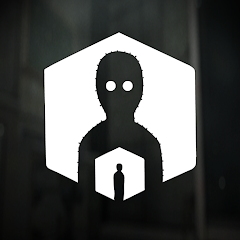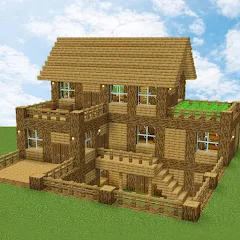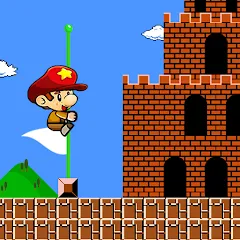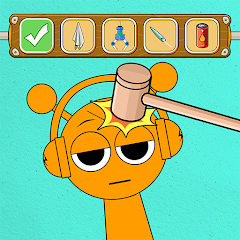
Coin Master
Avatar Maker Dress up for kids

Sonic Forces - Running Game
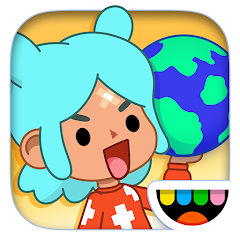
Toca Life World: Build a Story

Free Fire

Call of Duty

Subway Surfers

Miga Town

The Baby In Yellow

Super Meat Boy Forever

Poppy Playtime Chapter 1

Secret Neighbor

YoYa: Busy Life World

Bloons TD 6
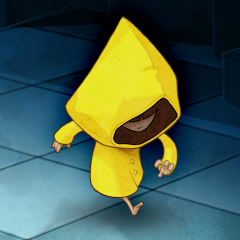
Very Little Nightmares

Talking Tom Gold Run

MONOPOLY - Classic Board Game
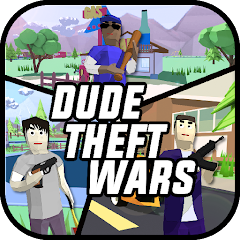
Dude Theft Wars: Offline games

Melon Playground

Car Race 3D: Car Racing

Township

Agent Hunt - Hitman Shooter

Call of Duty: Mobile Season 11

CHUCHEL

Among Us

Hill Climb Racing 2

Vector Classic

Magic Tiles 3

Red Ball 4

Five Nights at Freddy's

Garten of Banban 7

Muse Dash

Stumble Guys

Poly Bridge 2

Pok?mon UNITE
Avatar World: City Life
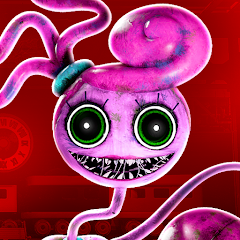
Poppy Playtime Chapter 2

Free Fire MAX

Hello Neighbor Nicky's Diaries

Ball Run 2048

Dark War Survival

Need for Speed

Toca Kitchen 2

PUBG MOBILE LITE

Garten of Banban 2
Papers, Please
Advertisement

5
Developer:
3909
Content rating:
Rated for 18+
Installs:
100K+
Category:
Stylized
Screenshots
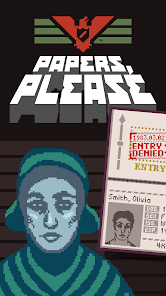

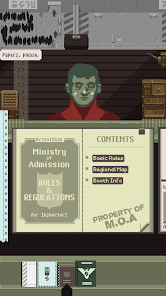
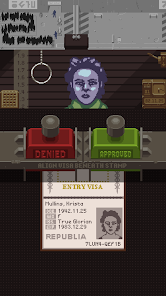
🛂 Papers, Please: A Thought-Provoking Masterpiece in Passport Form
An In-Depth 2000+ Word Review and Exploration of Lucas Pope’s Indie Classic---
🎮 Introduction: More Than Just a Game
In the sprawling world of video games, where flashy graphics, battle royales, and endless fetch quests often dominate, a few titles dare to stand apart. One such gem is Papers, Please—developed by the one-man indie studio 3909 LLC, spearheaded by Lucas Pope. With its release in 2013, the game quickly became a cult classic in the indie scene, widely acclaimed for its bold narrative, emotional depth, and distinctive gameplay.Not many games can turn bureaucratic monotony into a compelling, edge-of-your-seat emotional rollercoaster. Yet, that’s exactly what Papers, Please accomplishes, and it does so with purpose, style, and heart-wrenching moral dilemmas.
Welcome to the border checkpoint of Arstotzka—a fictional Eastern Bloc-inspired dystopia where your job is simple… or so it seems. Your task? Determine who gets in and who gets turned away. But behind every passport lies a human story—and behind every decision, a consequence.
---
🛠️ Game Overview: The Mechanics of Bureaucracy
📋 The Core Gameplay Loop
At its core, Papers, Please is a document inspection puzzle simulator. You play as an immigration officer stationed at the Grestin Border Checkpoint on behalf of the authoritarian government of Arstotzka. Your job is to inspect documents of those entering the country and decide—based on ever-changing rules and guidelines—who is allowed through and who is denied entry.Each day, you’re given new regulations to follow. Some days you must check for expired visas; other days it’s mismatching biometric data or unauthorized work permits. The complexity increases steadily, making it more challenging to keep up. Mistakes are penalized through citations, and too many errors can cut into your already minimal pay—putting your family’s health and survival at risk.
🕹️ Time is Money... and Morality
Each in-game day gives you limited time to process entrants. The more people you successfully screen, the more you earn. But rushing means higher chances of mistakes, which can have dire consequences. Every decision, every passport stamped, is a potential butterfly effect in motion, and this balance between efficiency and empathy becomes the fulcrum of the game’s experience.---
🧭 Setting and Atmosphere: Welcome to Arstotzka 🇦🇶
🏙️ A Dystopia Rendered in Pixels
The game’s setting—Arstotzka—is a grim, war-torn, totalitarian state recovering from conflict with its neighbors. The visual style reflects this mood masterfully. Using a retro pixel art aesthetic, Lucas Pope has managed to capture a world that feels cold, oppressive, and hauntingly real. Rather than high-resolution textures, Papers, Please opts for symbolism, minimalism, and an artistic economy that enhances storytelling instead of overwhelming it.
The bleak color palette of greys, dull yellows, and grayscale characters mirrors the moral ambiguity of your job. You’re not a hero with a cape; you're a cog in a bureaucratic machine. But this is deliberate—every stylistic choice feeds directly into the tone Pope aimed to create.
🔈 Sound Design: The Echo of Oppression
Let’s talk sound. The game’s audio design is stark, echoing the sterile atmosphere of government offices. Every notification chime, every ding of the approval stamp, and every unsettling buzz of rejection resonates with significance. The soundtrack, sparse yet effective, gently presses on players’ emotions without becoming overwhelming.One particularly striking design feature is the creeping anxiety built by the background noise—a subtle mix of mechanical hums, muffled voices, and bureaucratic white noise. It’s not just ambiance—it’s a representation of systemic dehumanization.
---
📖 Narrative Flow: A Story in Every Stamp
👤 Individual Lives Behind Paperwork
At first glance, Papers, Please might seem devoid of a central plot—but that’s misleading. The narrative structure is decentralized, told in fragments through conversations, documents, and subtle choices. The travelers who approach your booth aren’t just NPCs—they're mothers, refugees, smugglers, rebels, spies, and sometimes, lovers desperately seeking reunification.Personal narratives start to emerge. A man arrives daily, trying to bring his wife through the checkpoint. A young girl begs you not to let in a trafficker she fears. A mysterious man from an underground resistance slides you secret messages. These moments are powerful because they don't interrupt gameplay—they are the gameplay.
🧱 Systemic Oppression Meets Individual Morality
The juxtaposition of systemic oppression with individual ethics is perhaps the most poignant aspect of Papers, Please. The game doesn’t tell you what to do. It simply places choices before you: Do you let the woman in despite her forged visa, knowing she’ll die if turned away? Do you accept a bribe to save your starving family? Do you help the resistance, or maintain loyalty to the state?There are no clear right answers. Your choices influence multiple endings, but more importantly, they shape your personal journey through the game’s 31 days.
---
🎮 Gameplay Evolution: From Paper Pusher to Potential Rebel
📈 Increasing Complexity and Pressure
As you advance through the game, the mechanics become increasingly layered. New laws are introduced: terrorist threats alter border security, documents multiply, and technologies like fingerprint matching and body scans are added. What starts off as simple form-checking evolves into a multitasking challenge that tests memory, attention to detail, and moral fortitude.But the brilliance lies in how the mechanical difficulty mirrors emotional complexity. While you juggle multiple documents and rules, you're also mentally juggling questions of ethics and survival. It's multitasking on a human level.

🕵️♂️ Espionage & Subplots
As you progress, you’ll encounter the “Order of the EZIC Star,” a secretive resistance group hoping to overthrow the Arstotzkan regime. They test your loyalty, presenting you with sabotage missions, bribes, and philosophical quandaries.Whether you become a loyal bureaucrat, a silent rebel, or a morally tangled hybrid is entirely up to you. Few games offer this level of interpretive role-playing without branching into full RPG mechanics.
---
💬 Memorable Characters & Encounters
👨 Jorji Costava: Hope and Humor in a Grim World
Despite its heavy tone, the game doesn’t shy away from fleeting moments of levity. Enter Jorji Costava, the lovable recurring character who constantly tries to sneak into the country with obviously fake documents and a heartwarming persistence. Jorji offers comic relief, but also emotional nuance—his attempts showcase the absurdity of the system and the resilience of the human spirit.👪 Your Virtual Family: Emotional Anchors
Each day ends with a report showing how much money you earned and how your family is doing. Are they sick? Cold? Hungry? These elements initially feel like management mechanics but slowly become emotional weights. You love these pixel people. You begin sacrificing travelers’ fates to feed your son. You begin bending the rules to afford medication for your wife. Before you know it, you’re morally compromised for the greater good.---
🧠 Themes and Philosophical Underpinnings
⚖️ Ethics vs. Duty
Papers, Please is not just a game—it’s an ethical simulation. Its core question is timeless: In a flawed system, does following the rules make you complicit? The game doesn’t lecture. It just shows you the consequences of every action, and trusts you to decide how to live with them.🌀 The Banality of Evil
Inspired, in part, by historian Hannah Arendt’s concept of the "banality of evil," Papers, Please reveals how ordinary people become part of oppressive systems. You aren’t torturing anyone; you’re just rejecting a form. But that form was someone’s future.The game invites painful introspection—how would you act under pressure? Who would you save? Who would you sacrifice? It’s a mirror that reflects not the face of a hero but the quiet complicity of survival.
---

🧾 Repetition as a Narrative Device
One common critique of the game is its repetitive nature. And while it’s true that document-checking can feel tedious, this is very much the point. The repetition isn't lazy design—it’s the narrative. You feel the weight of routine and monotony, just as your character would. But within this bureaucratic grind, you find drama, pain, humor, and heartbreak. It’s an artistry of tedium.---
🎯 Critical Reception and Community Legacy
🏆 Accolades Galore
Since its release, Papers, Please has received a plethora of awards and nominations, including a BAFTA and the Seumas McNally Grand Prize at the Independent Games Festival. It’s been praised by critics, educators, and players alike for demonstrating how games can be both entertaining and intellectually engaging.🌍 Global Impact
The game has inspired academic discussions in sociology, ethics, and political science. It’s been used in classrooms as a tool to discuss immigration policy, totalitarian regimes, and ethical decision-making. It’s a rare game that breaks beyond the screen and into real-world discourse.---
📲 Availability and Accessibility
Papers, Please is available across multiple platforms including:- Windows, macOS, and Linux
- iOS for iPad and iPhone
- PlayStation Vita (yes, really)
Its system requirements are minimal, making it accessible even for players without high-end hardware.
---
🧬 Unique Takeaways and Personal Reflection
🧡 Emotional Resonance and Realism
What makes Papers, Please truly unforgettable isn’t its gameplay quirks or art style—it’s how deeply it forces you to care. You care about your fake family. You care about Jorji. You care about the fate of fictional strangers. That level of emotional immersion is rare and powerful.🔄 Replayability and Multiple Endings
With over 20 different endings, including several hidden ones, and numerous branching paths, Papers, Please rewards replaying. Your first playthrough is rarely your last. You’ll want to try different paths, approve who you denied, reject who you trusted, and see where it leads.
---
✅ Final Verdict: Glory To Arstotzka! 🇦🇶
Papers, Please is not a game you “beat”—it’s a game you experience. It’s an interactive moral examination, a political narrative disguised as document inspection, and a triumph of indie storytelling.If you're looking for high-octane action or showy graphics, look elsewhere. But if you're interested in a game that dares to ask difficult questions, makes you reflect on your own moral compass, and stays with you long after the credits roll—then Papers, Please is a must-play.
🏅 Rating: 9.5 / 10
A haunting, deeply human experience wrapped in pixelated bleakness.---
🏳️🌈 Bonus: Fun Facts & Easter Eggs
- 💡 Lucas Pope developed the entire game largely by himself.- 🕹️ The game includes a hidden endless mode unlocked after completing story mode.
- 🐶 There’s even a small nod to a dog named "Ezek" if you dig deep enough!
---
📌 In Conclusion
Papers, Please is proof that games can be art. It is sobering without being preachy, challenging without being unfair, and emotional without a single voiced line. It combines gameplay and narrative in a way that not only entertains but also enlightens.In a world where games often provide escapism, Papers, Please offers an invitation—to confront, question, and reflect.
🛂 Glory to Arstotzka… but also… glory to brilliant, boundary-pushing indie games.







